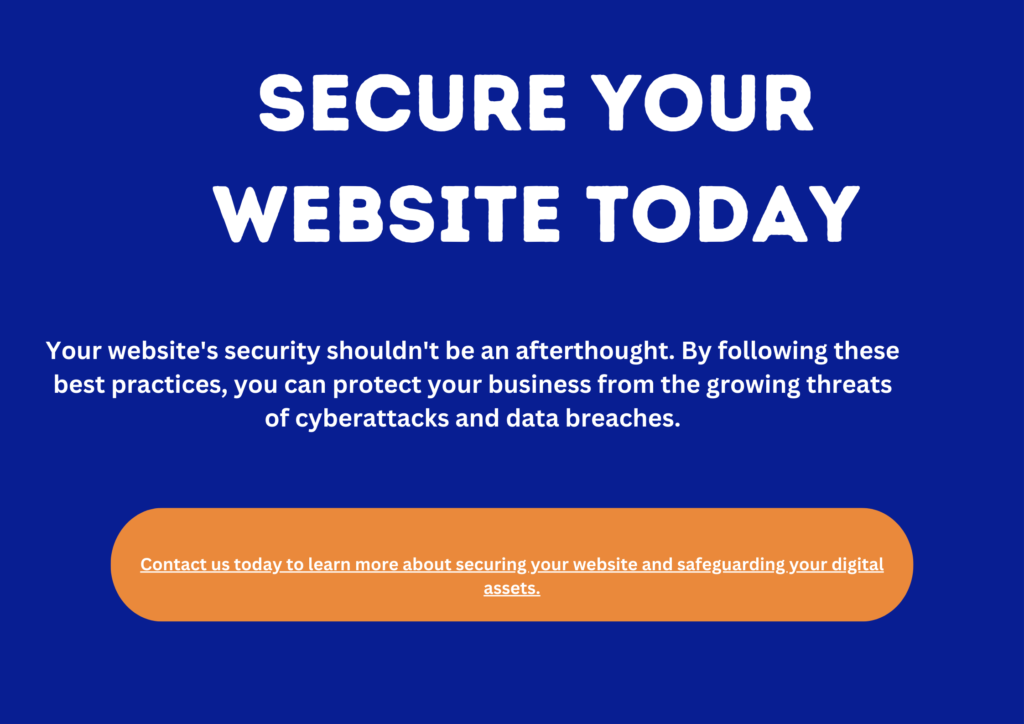INTRODUCTION

Website security is essential for every business owner or website manager. Cyberattacks and data breaches can damage your reputation, compromise sensitive information, and cost you financially. This article will provide practical advice on how to reduce the risk of getting breached while exploring cybersecurity best practices and the tools you need to safeguard your website.
What You’ll Learn:
- Key causes of data breaches.
- Steps to improve website security.
- Tools for data breach prevention.
- Why implementing cybersecurity best practices matters.
Why is Website Security Important?
Securing your website is critical for protecting sensitive customer data, ensuring business continuity, and maintaining trust with your audience. Without proper security measures, your website could fall victim to:
- Hacking Attempts:
Malicious actors exploiting vulnerabilities. - Data Breaches:
Theft of personal and financial data. - Downtime and Revenue Loss:
Cyberattacks disrupting your operations.
By understanding the risks and implementing security strategies, you can significantly reduce your chances of being breached.
Common Causes of Data Breaches
1. Weak Passwords
Passwords like “123456” or “password” are easily guessed. Always use strong, unique passwords for website admin access.
2. Outdated Software
Failing to update your CMS or plugins can leave your site vulnerable to attacks.
3. Phishing Attacks
Cybercriminals use fake emails or links to steal login credentials.
4. Lack of Encryption
Without encryption, sensitive data can be intercepted during transmission.
Cybersecurity Best Practices
1. Use Strong Passwords
A strong password policy includes:
- Minimum 12 characters.
- A mix of letters, numbers, and symbols.
- Regular password changes.
2. Enable Multi-Factor Authentication (MFA)
Adding MFA to your website admin panel provides an additional layer of security.
3. Keep Software Up-to-Date
Update your CMS (like WordPress), themes, and plugins regularly. Tools like Sucuri can help monitor vulnerabilities.
4. Install an SSL Certificate
Secure Sockets Layer (SSL) encrypts communication between your site and users. Check for HTTPS in your browser to ensure encryption.
5. Backup Data Frequently
Store backups offsite or on the cloud to quickly restore your website after an incident.
How to Reduce the Risk of Getting Breached
- Educate Employees: Provide training on recognizing phishing emails and safe internet practices.
- Choose a Secure Host: Opt for hosting providers with robust security features, such as firewalls and automated malware scans.
- Implement Role-Based Access: Limit admin privileges to only essential personnel.

Tools for Data Breach Prevention
- Firewalls: Tools like Cloudflare block unauthorized traffic and DDoS attacks.
- Antivirus Software: Regularly scan for malware using tools like Norton or Bitdefender.
- Security Plugins: Use Wordfence or iThemes for additional layers of protection.
- Backup Solutions: Services like BackupBuddy ensure quick recovery after an attack.
Secure Your Website Today
Your website’s security shouldn’t be an afterthought. By following these best practices, you can protect your business from the growing threats of cyberattacks and data breaches.
Contact us today to learn more about securing your website and safeguarding your digital assets.
FAQ Section
1. Why is website security important for small businesses?
Website security builds customer trust, protects sensitive information, and ensures business continuity.
2. What is the easiest way to secure a website?
Start by enabling SSL, using strong passwords, and keeping all software updated.
3. Can I secure my website without professional help?
While tools like firewalls and plugins make it easier, consulting a security expert ensures comprehensive protection.
Conclusion
Website security is an ongoing process that requires vigilance, the right tools, and proactive measures. By following the steps outlined in this guide, you can reduce the risk of getting breached and protect your business from costly cyber threats.
Ready to secure your website? Contact us now to get started.


